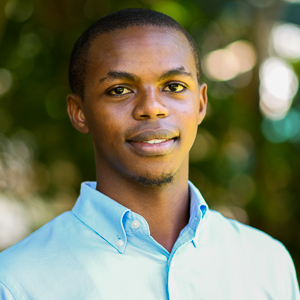News
Reflections and triumphs of a former IDeAL student
August 9, 2021
I have had quite the journey leading up to the IDeAL postgraduate diploma studentship. I chose to pursue my studies in Chemistry in my undergraduate years out of the deep love that developed for science in high school. I did well in all sciences but truth be told, I liked biology the least of them all. I ended up choosing Analytical Chemistry since it had the perfect combination (in my head) of mathematics, chemistry and physics.
Later on, in my last semester on campus, my world was turned upside down by two-course units called biomedical and forensic analytical chemistry, and radiochemical and enzymatic analyses. They were mainly applications of chemistry techniques to biological samples, and they were eye-opening. I discovered that what I wanted to do was something along the lines of biomedical research.
I knew that it was not too late for me to shift fields, I purposed to explore opportunities in biomedical research. This is how I found out about the IDeAL website and applied for the PGD programme.
The programme allows the students to understudy established researchers in various fields. I had the privilege of understudying Dr Marta Maia and Dr Maureen Laroche in the Vector Biology Group.
Mosquito control has been the most effective way of fighting malaria, but its full potential is yet to be achieved. My work was on the surveillance of age distributions in mosquito populations.
Why is this important you ask? Well, regardless of the great strides made in the fight against malaria since 2000, we are currently experiencing a slowdown in progress. In fact, according to the World Health Organization (WHO) estimates, the African region seems to be in reverse gear. There has been a steady increase in estimated malaria cases from 197 million to 213 million in Africa between 2014 and 2018! As a result, the WHO formed the Global Vector Response Strategy 2017-2030 that recommends vector surveillance and intervention monitoring as priority activities in strengthening vector control worldwide.
In essence, tailor-made interventions against a mosquito population’s malaria transmission potential require sufficient information concerning the population. We must also keep monitoring the effectiveness of the interventions we implement on an ongoing basis to maintain progress.
Thankfully, the PGD programme allowed me to make a small but significant contribution to the cause! The age distribution of a mosquito population is a great source of information about its ability to spread malaria. The Plasmodium parasite undergoes a period of development within a mosquito before it can be transmitted by the mosquito. Therefore, only mosquitoes that outlive this period can be able to transmit malaria. Older mosquitoes have a higher capacity to transmit malaria.
Studies have demonstrated that as mosquito ages, their protein profile changes. My work sought to determine whether changes in the protein composition in mosquitoes can be useful in classifying them by age. Current methods used to obtain this information are either inaccurate, provide insufficient information or are tedious and time-consuming
Some of the preliminary results from the study point that we can replace the tiresome and time-consuming dissection methods currently in use with protein profiling by mass spectrometry.
In addition, entomologists are already using this method to obtain useful information. These include the species of caught mosquitoes, whether or not they are infected with malaria parasites, and their preferred blood meal sources. Therefore, we can conveniently get four different types of information accurately just by investigating the protein profile of mosquitoes. You will be pleased to hear that the machine can analyse multiple mosquitoes in minutes if the ‘thousands of mosquitoes per survey’ statement still baffles you.
Aside from my research work, I had the time of my life as an aspiring scientist during the programme. I especially enjoyed the seminars and journal club sessions that we had access to as students. It was intellectually stimulating to sit under the voice of exceptional scientists describing their research activities, and the interesting new questions they encounter as they generate evidence for improved health in Africa and beyond. I discovered an area of medical research that I can contribute to in one of these seminars, given my background as an analytical chemist.
Another of the many things that I enjoyed is quality supervision. Student-supervisor relationships have been subject to much talk in social media. I learnt by experience how a good relationship with one’s supervisor(s) accelerates growth and confidence. One of the most stressful things I had to do was to present my critique of a published paper during a journal club, but I was able to sail through with the guidance of my supervisors. I intend to replicate this relationship dynamic in the future when I get the chance to be a supervisor.
The biggest challenge for me came when COVID-19 found its way into the country. As a COVID testing centre, the labs had to have restricted accessibility, for the safety of everyone in the Programme. This called for flexibility since that my research alternated between the Insectary and the laboratories. We adjusted our objectives and highlighted the results we had already obtained at that point in time.
The Postgraduate Diploma programme by IDeAL has allowed me to immerse myself in the medical research world, and to discover which direction to take. I believe that this is the largest impact the programme has had in my career. In addition, it provided a space for me to experience excellence in the scientific method, setting the standards expected from my work. The exposure also gives me a competitive edge when competing for scholarship positions to further my studies. The opportunity to be part of this programme is truly a blessing that I am grateful for.
- 51
- 66
- 48
- 104
- 44
- 423


Share: